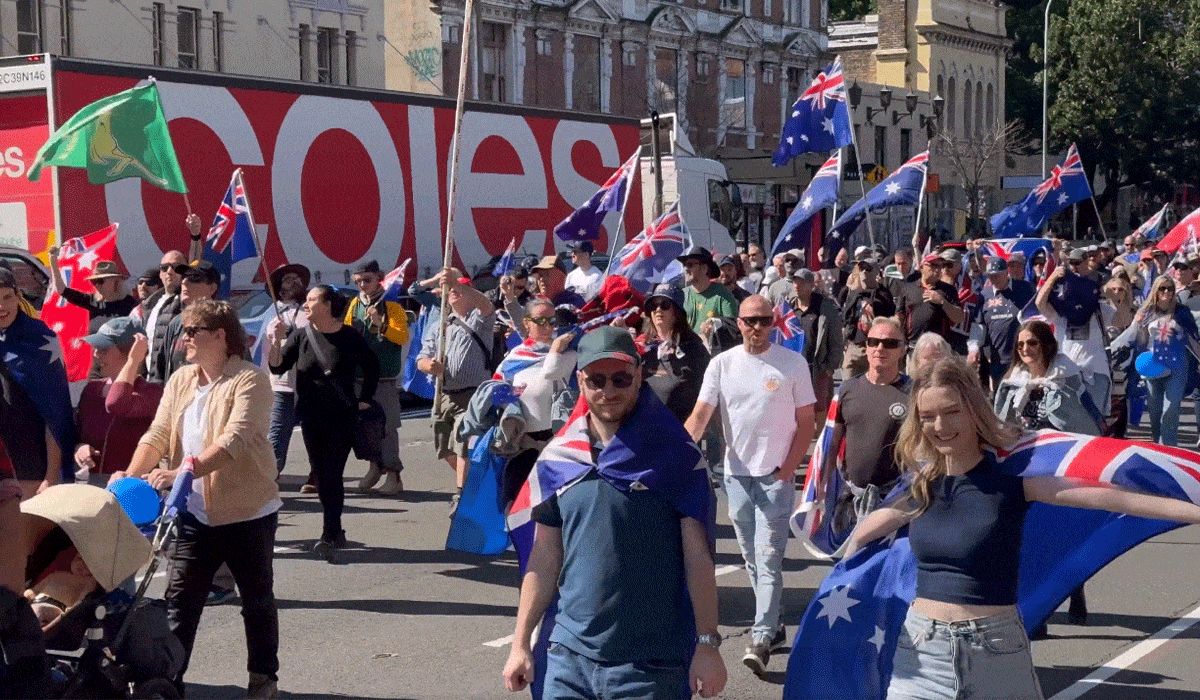March for Australia’ Sparks Nationwide Anti-Immigration Protests, Specially Against Indian Immigrants
On August 31, 2025, thousands of people in Australia participated in the anti-immigration rallies known as the March for Australia, which were condemned by the federal government, led to violent confrontations in major cities, and elicited a strong response in multicultural communities.

Australians held the controversial March for Australia rallies on Sunday, August 31, in state capitals and regional centres, demanding an end to what the participants called mass immigration. The protests with nationalistic overtones were subjected to strict criticism and examination.
Table of Contents
Nationwide Demonstrations, Divided Sentiments
Crowds in cities such as Sydney, Melbourne, Brisbane, Canberra, and Adelaide were much larger, with 30,000 people marching, by some estimates, in Brisbane, where the police lauded the largely peaceful turnout, while complaining of housing, wages, infrastructure and cultural change.
Also Read: Google Urges 2.5 billion Gmail Users to Act Now After Salesforce-Related Data Breach
Tensions Escalate in Melbourne and Sydney
The confrontations fell on Melbourne and Sydney, where police fired pepper spray, baton rounds, and riot squad at violent demonstrations between anti-immigration activists and counter-protestors, such as pro-Palestinian and multicultural activists. 6 people were arrested there, including for suspected assault during clashes.
Extremism and the Assault on Camp Sovereignty
The most disturbing, perhaps, was a violent event at Camp Sovereignty, an Indigenous protest site in Melbourne. A crowd of neo-Nazi National Socialist Network members invaded the premises with sticks and poles, injuring people and instilling serious fear. Four targeted women needed medical attention with two taken to hospital with serious head injuries.
Political and Community Backlash
The federal government, which was based in the center-left, quickly denounced the rallies. Multicultural Affairs Minister Anne Aly condemned the events as planned by Nazis and designed to promote hate, and Prime Minister Anthony Albanese described the events as antithetical to Australian values.
Voices of Pain and Resistance
Multicultural community leaders referred to the rallies as opening old wounds, which they compared to the days of the White Australia policy and invoked deep emotional pain among migrant communities. They highlighted that hateful slogans such as send them back and overt slogans such as White Australia added to the fear and sense of exclusion.
What’s Next?
With this tense situation, Australians are going through a phase of reckoning, politically, socially and emotionally. As polarization and the infiltration of extremist organizations is revealed through such rallies, the need to have a more inclusive and open discussion on immigration and identity has never been more pressing.
